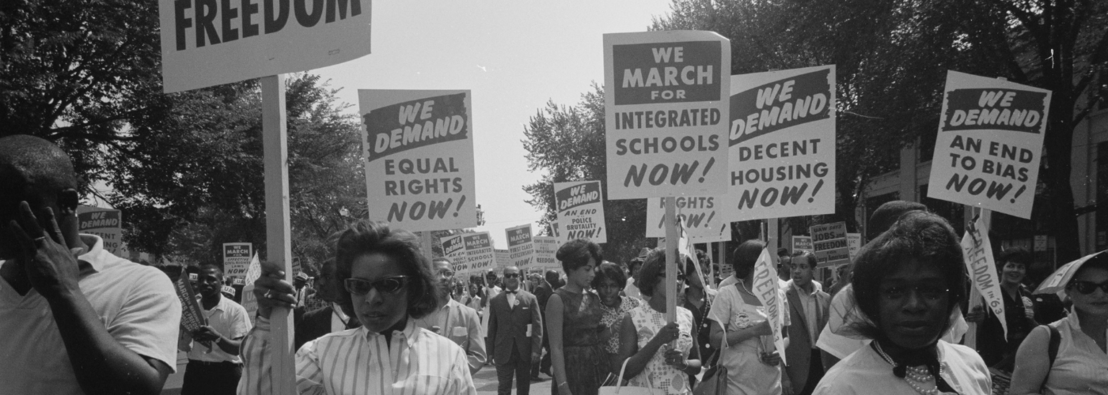Słownictwo politologiczne
Słownictwo z zakresu polityki w języku angielskim obejmuje konkretne słowa i zwroty używane do omawiania i opisywania systemów politycznych, instytucji, procesów i ich aspektów. Słownictwo to obejmuje między innymi terminy związane z rządem, wyborami, demokracją, polityką, prawem i stosunkami międzynarodowymi. Terminologia polityczna jest niezbędna dla każdego, kto jest zainteresowany zrozumieniem i uczestnictwem w świecie polityki, niezależnie od tego, czy jest obywatelem, politykiem czy dziennikarzem. Przykłady słownictwa w języku angielskim obejmują między innymi terminy takie jak "demokracja", "republika", "konstytucja", "parlament", "prezydent", "premier", "gabinet", "polityka", "budżet", "ustawodawstwo", "dyplomacja" i "sprawy zagraniczne".

Poznaj słownictwo dotyczące instytucji politycznych
| Słowo | Definicja |
|---|---|
| Executive branch | The branch of government responsible for implementing and enforcing laws and policies, typically led by a president, prime minister, or monarch. |
| Legislative branch | The branch of government responsible for making laws, typically consisting of a parliament, congress, or other elected body. |
| Judiciary | The branch of government responsible for interpreting and applying the law, typically consisting of a system of courts and judges. |
| Bureaucracy | The administrative arm of government, typically staffed by non-elected officials who implement and manage policies and programs. |
| Electoral system | The system by which representatives are elected to government positions, including methods such as first-past-the-post, proportional representation, and ranked-choice voting. |
| Constitution | A document that outlines the fundamental principles and rules of a government, typically establishing the framework for its political institutions and the rights and responsibilities of citizens. |
| Cabinet | A group of advisors to the head of government, typically consisting of senior ministers responsible for specific policy areas. |
| Parliament | A legislative body consisting of elected representatives, typically divided into two houses, such as a House of Commons and a House of Lords. |
| Monarchy | A system of government in which a monarch, such as a king or queen, is the head of state and often has ceremonial and symbolic roles. |
| Separation of powers | The principle of dividing government power among multiple branches or institutions, such as the executive, legislative, and judicial branches, in order to prevent any one entity from becoming too powerful. |
| Federalism | A system of government in which power is divided between a central government and regional or state governments, with each level of government having its own distinct powers and responsibilities. |
| Rule of law | The principle that all individuals and institutions are subject to and must abide by the law, rather than being subject to the arbitrary power of government or other entities. |

Poznaj słownictwo dotyczące instytucji politycznych
| Słowo | Definicja |
|---|---|
| Democracy | A system of government in which power is held by the people, usually through free and fair elections. |
| Autocracy | A system of government in which power is held by a single person or a small group of people, often gained through force or violence. |
| Authoritarianism | A form of government characterized by strong central power and limited political freedoms for citizens, often with a lack of accountability or transparency. |
| Constitution | A document that outlines the fundamental principles and rules of a government, typically establishing the framework for its political institutions and the rights and responsibilities of citizens. |
| Federalism | A system of government in which power is divided between a central government and regional or state governments, with each level of government having its own distinct powers and responsibilities. |
| Bureaucracy | The administrative arm of government, typically staffed by non-elected officials who implement and manage policies and programs. |
| Public policy | The decisions and actions of a government aimed at addressing public issues and concerns, such as education, healthcare, and social welfare. |
| Political party | A group of individuals with shared political beliefs and goals, who work together to win elections and promote their policies and candidates. |
| Campaign finance | The money and resources used to fund political campaigns, including contributions from individuals, organizations, and political action committees (PACs). |
| Lobbying | The practice of attempting to influence government policy and decision-making by individuals or groups, often through the use of professional lobbyists or interest groups. |
| Transparency | The principle of openness and accountability in government decision-making, often involving the disclosure of information and public access to government proceedings and records. |
| Checks and balances | The system by which different branches or institutions of government limit and balance each other's power, in order to prevent any one entity from becoming too powerful. |
| Executive order | A directive issued by a government executive, such as a president or a prime minister, that has the force of law and does not require legislative approval. |
| Judicial review | The power of a court to review and potentially overturn laws and policies that are deemed unconstitutional or in violation of legal principles. |
| Accountability | The principle of holding government officials and institutions responsible for their actions and decisions, often involving mechanisms such as audits, investigations, and public scrutiny. |
Ucz się Angielskiego efektywnie
Czy szukasz więcej słownictwa angielskiego do nauki? Z pewnością znajdziesz tutaj coś dla siebie!

Nauka słownictwa z zakresu praw obywateli i praw człowieka
| Słowo | Wyjaśnienie |
|---|---|
| Civil rights | The legal and constitutional rights guaranteed to all citizens, such as the right to vote, the right to due process of law, and the right to free speech. |
| Human rights | The fundamental rights and freedoms that all individuals are entitled to, regardless of their race, gender, nationality, or other status, including the right to life, liberty, and security of person. |
| Discrimination | Unfair treatment or prejudice against an individual or group based on their race, gender, religion, or other characteristics. |
| Equality | The principle of treating all individuals and groups fairly and equally, without discrimination or bias. |
| Freedom of speech | The right to express opinions and ideas without censorship or fear of retribution, protected by many national constitutions and international human rights conventions. |
| Freedom of religion | The right to practice any religion or belief system, or to have no religious affiliation, protected by many national constitutions and international human rights conventions. |
| Due process | The legal principle that requires fair and impartial treatment in legal proceedings, including the right to a fair trial, the right to legal representation, and the right to appeal. |
| Minority rights | The rights of individuals or groups who are in a minority, typically protected by law or convention in order to prevent discrimination or marginalization. |
| Racial justice | The concept of ensuring fair and equal treatment of individuals and groups regardless of race, and working to address systemic racism and discrimination. |
| Gender equality | The principle of treating individuals of all genders equally, including equal access to education, employment, and political participation. |
| Disability rights | The rights of individuals with disabilities, including the right to equal access to education, employment, and public accommodations. |
| Human trafficking | The illegal practice of exploiting individuals for forced labor or sexual exploitation, often involving coercion, deception, or abuse of power. |
| Refugee rights | The rights of individuals who are forced to flee their home country due to persecution or conflict, including the right to seek asylum and protection from harm. |
| Police brutality | The use of excessive or unnecessary force by law enforcement officials, often resulting in injury or death, particularly in cases involving marginalized communities. |

Nauka słownictwa z zakresu stosunków międzynarodowych i dyplomacji
| Słowo | Definicja |
|---|---|
| Diplomacy | The art and practice of conducting negotiations and maintaining relations between nations, usually through diplomats and official channels. |
| Ambassador | A high-ranking diplomat appointed by a government to represent their country in another nation and act as a liaison between the two. |
| Consulate | A diplomatic office or residence established by a country in a foreign city, typically headed by a consul, to assist its citizens and handle various diplomatic functions. |
| Treaty | A formal agreement or contract between two or more countries, often addressing matters of mutual concern, such as trade, security, or human rights. |
| Multilateralism | The principle or practice of cooperation and coordination among multiple countries in addressing global issues and achieving common goals. It emphasizes collective decision-making and shared responsibilities. |
| Sovereignty | The supreme authority and power of a state to govern itself and make decisions without interference from external forces. It is a fundamental principle in international relations that respects the independence and territorial integrity of nations. |
| Nonproliferation | The prevention or control of the spread or proliferation of nuclear weapons, chemical weapons, or other weapons of mass destruction. It involves diplomatic efforts, agreements, and measures to discourage or restrict the acquisition and development of such weapons. |
| Sanctions | Coercive measures imposed by one or more countries on another country as a diplomatic tool to influence its behavior. Sanctions can include economic restrictions, trade embargoes, travel bans, or other punitive actions. |
| Soft power | The ability of a country to influence others and shape their preferences through attraction, persuasion, and cultural influence, rather than through military or economic coercion. Soft power relies on a country's cultural, educational, and ideological appeal. |
| Summit | A high-level meeting or conference between leaders or representatives of different countries. Summits are often held to discuss and address significant issues, promote dialogue, and foster cooperation between nations. |
| Diplomatic immunity | The legal protection granted to diplomats and embassy staff that exempts them from prosecution or legal action in the host country's legal system. It ensures that diplomats can carry out their duties without fear of harassment or interference. |
| Bilateral relations | The interactions, agreements, and overall relationship between two countries. Bilateral relations can encompass various aspects, including political, economic, cultural, and security cooperation between the two nations. |
| Non-governmental organization (NGO) | A non-profit organization that operates independently of any government and works to address social, humanitarian, environmental, or developmental issues at the national or international level. NGOs often play a role in diplomacy and international relations by advocating for specific causes or providing humanitarian assistance. |
| Diplomatic corps | The collective body of diplomats representing different countries in a particular location, such as an embassy or consulate. The diplomatic corps facilitates communication, negotiation, and diplomatic activities between nations. |

Nauka słownictwa z zakresu ekonomii politycznej
| Słowo | Wyjaśnienie |
|---|---|
| Capitalism | An economic system characterized by private ownership of industries and businesses, where individuals and corporations have the freedom to invest capital, produce goods and services, and engage in trade based on market principles such as supply and demand. |
| Socialism | An economic and political system in which the means of production, distribution, and exchange are owned and regulated by the community as a whole, usually through the state. Socialism aims to achieve greater equality and reduce disparities through collective ownership and control. |
| Neoliberalism | An ideology and approach to economics that advocates for reduced government intervention in markets and emphasizes free trade, privatization, deregulation, and the protection of individual rights. Neoliberalism seeks to promote economic growth through market-oriented policies. |
| Welfare state | A political system in which the government plays a significant role in promoting the economic and social well-being of its citizens. It typically includes policies such as social security, healthcare, education, and unemployment benefits to ensure a certain level of social protection. |
| Globalization | The process of increasing interconnectedness and integration of economies, societies, and cultures across national boundaries. Globalization involves the flow of goods, services, capital, information, and people, often facilitated by advancements in technology and international trade. |
| Income inequality | The unequal distribution of income among individuals or groups within a society. Income inequality is often measured using indicators such as the Gini coefficient and is influenced by factors like economic policies, social structures, and access to resources and opportunities. |
| Trade liberalization | The removal or reduction of barriers to international trade, such as tariffs, quotas, and trade restrictions. Trade liberalization aims to promote economic growth, increase market access, and foster global economic integration. |
| Fiscal policy | The use of government spending, taxation, and borrowing to influence and manage the overall health and direction of the economy. Fiscal policy is often employed to promote economic stability, stimulate growth, and manage public finances. |
| Monetary policy | The actions and measures undertaken by a central bank to regulate and control the money supply, interest rates, and credit conditions in an economy. Monetary policy is used to influence inflation, maintain price stability, and support economic growth. |
| Economic inequality | The unequal distribution of economic resources, opportunities, and outcomes among individuals or groups within a society. Economic inequality can be influenced by various factors, including income disparities, wealth accumulation, and access to education and employment opportunities. |
